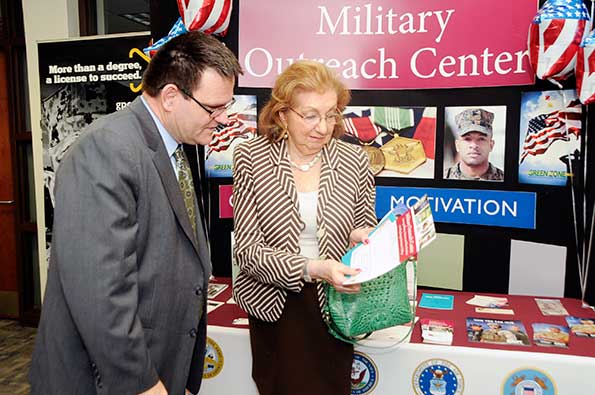
Dr. David Snow, the University System of Georgia’s director of military affairs, and GPC Foundation Board of Trustees member Liane Levetan look over brochures after the announcement of the Marcus Foundation grant. (photo by Bill Roa)
by Rebecca Rakoczy
Adapt. It’s a familiar word for military veterans who saw conflict in Iraq and Afghanistan. They learned to roll with the changes of multiple deployments.
But life after the military isn’t the same as taking orders from a commanding officer. Becoming a college student can require a significant transition.
Christopher Tucker personally knows the challenges military students face returning to the civilian world. Tucker served in Iraq and Kuwait and is among the more than 1,100 veterans, active military, Guard, Reserve and military family members now enrolled at Georgia Perimeter College. Now in the Army Reserve, he splits his time between classes on GPC’s Clarkston campus and his job as a veterans peer navigator, helping veterans and their families at a Catholic Charities of Atlanta office in Chamblee. He hopes one day to become a personal trainer.

GPC student and veteran Christopher Tucker participated in the program and talked to guests attending the Marcus Foundation grant announcement. (photo by Bill Roa)
“It can be very hard for veterans coming back to school—or coming for the first time,” Tucker says. “Some are young and trying to make it [financially] off the GI bill; they work full time and go to school. It’s a different lifestyle than the military. Once financial hardship comes, sometimes they just drop out and don’t come back to school,” he says.
More than money
Outside of the financial adaptation, there is the psychological aspect, Tucker says. Many military students and veterans have experienced combat and dealt with situations that require extreme discipline. They can be frustrated by a seeming lack of respect and understanding among their peers, he says.
“Think of two young men —one who has served in the military for years and is coming to college for the first time; the other is coming to college after high school. There is a level of immaturity there (with the non-military student), and that’s irritating for veterans in those classrooms and can be stressful.” Tucker noted that military students and veterans need to learn how to adapt to the changes as well and not be so hard on their fellow students.
Because of the challenges veterans face coming back to school, it’s important for the students to know they are welcome, says Dr. David Snow, the University System of Georgia’s director of military affairs.
Veteran students add a great deal to the learning community, says Snow. “I firmly believe our military and veteran students provide a global perspective and tend to be highly focused and motivated.”
That’s where GPC’s Military Outreach services come in. Since 2012, Georgia Perimeter College has provided a Military Outreach Center for student veterans, active military and their families. The Military Outreach Center helps students navigate their military or veteran benefits while becoming familiar with the less-structured environment of college.
To that end, GPC Military Outreach Director Mark Eister developed mentorship programs that pair former military faculty and staff members with veterans. He’s developed a video training program, known as the “Green Zone,” to help faculty and staff understand some of the issues facing veterans. And, for the past three years, he’s fully staffed one outreach center on Clarkston Campus and provided a part-time military student advocate on Dunwoody Campus.
These efforts have garnered the Outreach Center three separate designations as a top Military Friendly school. The label reflects the college’s efforts to provide educational opportunities to U.S. veterans, active-duty troops and their families.
Expanded physical presence
More was needed, however. Without a physical military outreach presence on each campus, it was difficult to address the needs of all military students and veterans attending GPC, Eister says.
That changed this spring, thanks to a generous grant from The Marcus Foundation. The three-year grant provides funding for three full-time military student advocates, creates numerous additional military scholarships and establishes a Veteran Emergency Fund for students dealing with temporary financial crises. The goal is to help military students stay in school.
“The Marcus Foundation grant will provide essential, one-on-one support for every veteran and military-related student at Georgia Perimeter College,” says Eister. “Our military student advocates will offer personalized advice and guidance to each and every student veteran, including our online military students.”

Mark Eister, military outreach director for GPC, presents a special flag display prepared for the Marcus Foundation in gratitude for its support. (photo by Bill Roa)
Eister noted it is “one thing to say you care about veterans, their education and their future; it is quite another to put your money where your mouth is and make it a reality. The Marcus Foundation grant will greatly extend the college’s ability to help veterans and military students transition to college life and move forward in their careers.”
In mid-March, Eister was able to hire three military student advocates to staff the Decatur, Dunwoody and Newton campuses. Laura Meyer, Decatur; Lorretta Arrington, Dunwoody/Alpharetta, and Nathan Gholston, Newton and online, join Clarkston’s military outreach coordinator John Douglas, as military student advocates.
“GPC has been a leader in meeting the needs of veteran students,” says the USG’s Snow. “Mark has led the effort, and I frequently use his programs as reference when other schools approach me concerning the establishment of veterans centers, outreach programs, and community partnerships.”
Gholston, one of GPC’s new advocates, was hired to support military students at the Newton Campus as well as military students enrolled online. With more than 26 years in the Army, the retired first sergeant has “walked the walk” of many of the veterans and military students coming to college.
“It’s important to have someone to be here for them to connect with, for them to come in and talk about nearly anything that is on their mind and to learn from someone who can relate to what they’re saying,” says Gholston. “In the military, everything is time and organization, and you need to get things done in a set time. It’s a different world outside the military, and no one knows exactly what you’ve been through.”
Check out this issue’s other articles about military and veteran students and GPC’s outreach services:
Military Advocates Bring Understanding to Their Role
Mark Eister: Supporting Service Members
Marcus Foundation Grant Will Help GPC Serve More Student Veterans


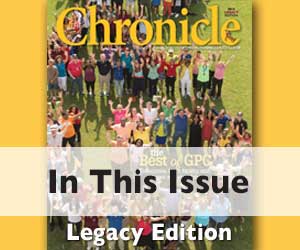
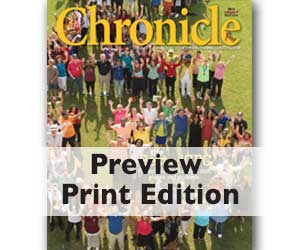
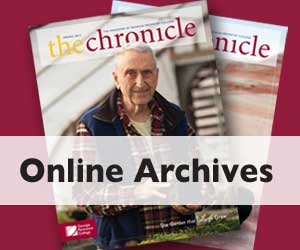
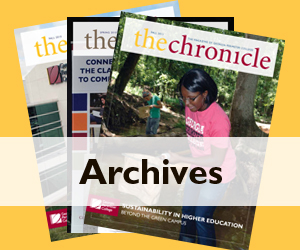

No Comments on “Easing the Transition for Military Students”